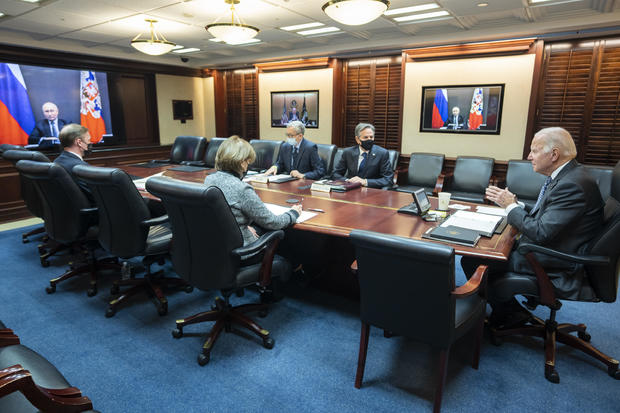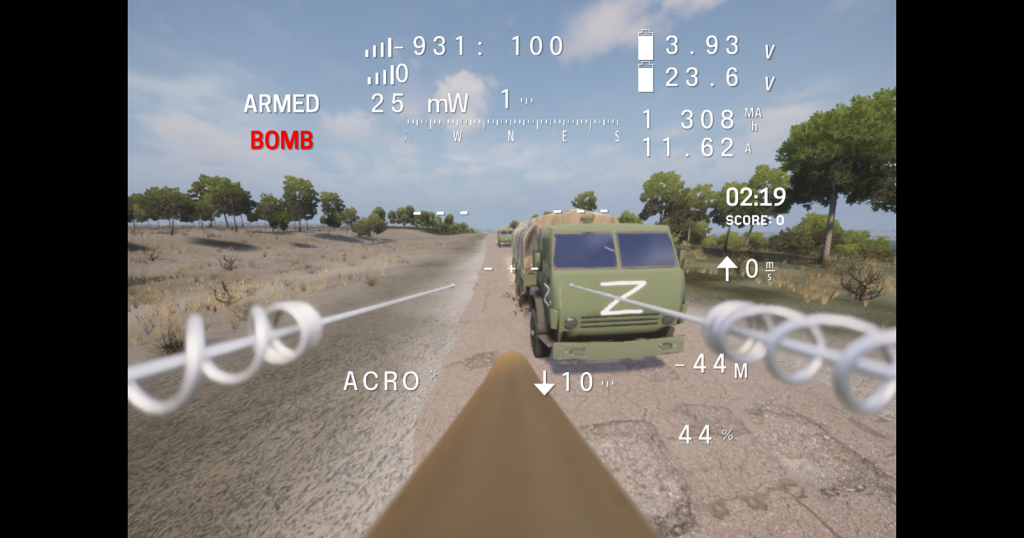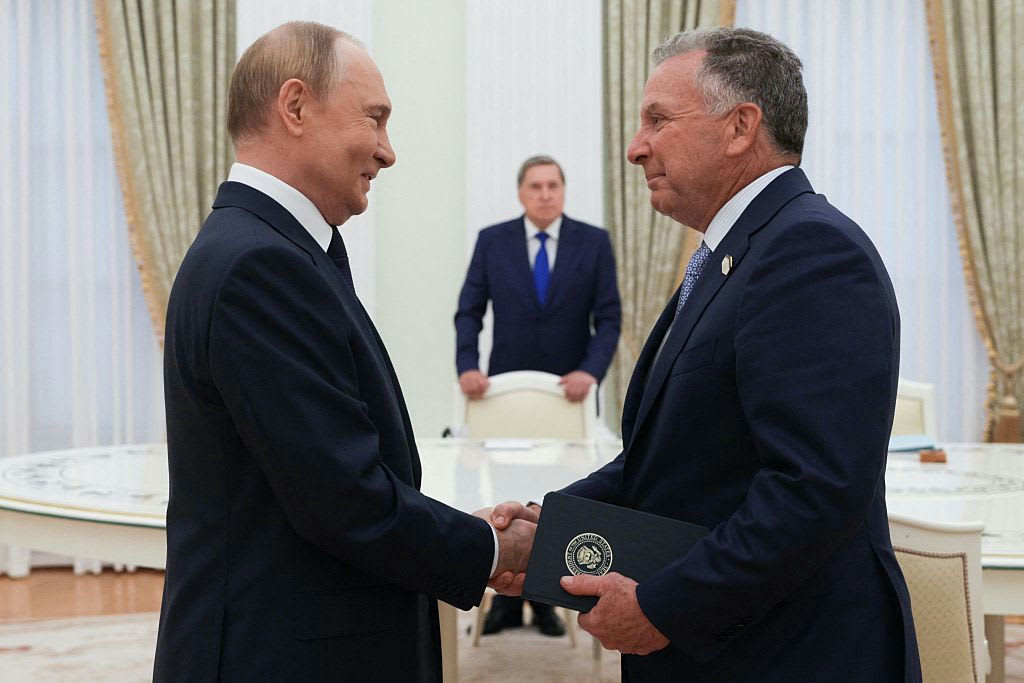Biden expressed "deep concerns" to Putin over Ukraine, White House says
Washington — President Biden told Russian President Vladimir Putin that the U.S. and its European allies have "deep concerns" about Russia's buildup of troops near Ukraine, warning the Russian leader that the U.S. would pursue "strong economic and other measures" in the event of an invasion, the White House said.
The two leaders held a video call for two hours on Tuesday, after U.S. intelligence officials warned of a possible Russian invasion of Ukraine as soon as January.
"President Biden voiced the deep concerns of the United States and our European Allies about Russia's escalation of forces surrounding Ukraine and made clear that the U.S. and our Allies would respond with strong economic and other measures in the event of military escalation," the White House summary of the call said. "President Biden reiterated his support for Ukraine's sovereignty and territorial integrity and called for de-escalation and a return to diplomacy."
The statement said the two leaders tasked their teams to "follow up, and the U.S. will do so in close coordination with allies and partners." Mr. Biden and Putin also discussed "the U.S.-Russia dialogue on Strategic Stability, a separate dialogue on ransomware, as well as joint work on regional issues such as Iran."
White House national security adviser Jake Sullivan told reporters Tuesday afternoon the U.S. and allies would implement economic sanctions and provide material support for NATO allies in Eastern Europe if Russia further invades Ukraine. Sullivan described the meeting as a "useful" one, full of back-and-forth discussion. Sullivan declined to go into details about Russia's side of the discussion.
Tens of thousands of Russian troops have amassed at the Ukraine border, months after thousands of troops assembled at the border in the spring. But unlike last spring's buildup, which was regarded as a show of force, U.S. intelligence officials are warning that this one could be in preparation for an actual incursion into the Donbass region of Eastern Ukraine.
After the virtual meeting between the two leaders got underway, Russian state television showed footage of Putin greeting Mr. Biden. "Good to see you again," Mr. Biden said. "We didn't get to see one another at the G-20. I hope next time we meet we do it in person."
The White House released a photo of Mr. Biden in the Situation Room, where he was joined by Sullivan, Secretary of State Antony Blinken and two other aides.
On a call with reporters Monday, a senior administration official didn't go into specifics about what Mr. Biden planned to tell Putin the U.S. military will or won't do in the event of an incursion. The official did say that in the event of a Russian military invasion, the U.S. will provide reassurance to allies.
"I don't want to use a public press call to talk about the particular sensitive challenges that President Biden will lay out for president Putin, but I would say that the United States is not seeking to end up in a circumstance in which the focus of our countermeasures is the direct use of American military force as opposed to a combination of support for Ukrainian military, strong economic countermeasures, and a substantial increase in support and capability to our NATO allies to ensure that they remain safe," the official said.
Russia has denied any buildup and has accused Ukraine of its own troop buildup, according to BBC News.
Mr. Biden planned to speak to key European allies later Monday, and with Ukraine President Volodymyr Zelenskyy on Thursday, Sullivan said.
Mr. Biden said Friday that he has been "aware of Russia's actions for a long time." Putin said last week that he had new "red lines" — Washington and its allies must not deploy missiles in Ukraine capable of hitting Moscow. He is also fiercely opposed to Ukraine's bid for NATO membership, and has demanded guarantees that the transatlantic military alliance will not push its geopolitical boundaries further east, toward Russian soil. Mr. Biden said Friday that he doesn't "accept anyone's red lines."
A possible Russian invasion of Ukraine could involve as many as 175,000 troops, a U.S. official confirmed last week to CBS News. The plans involve extensive movement of 100 battalion tactical groups with an estimated 175,000 personnel, along with armor, artillery and equipment, according to an administration official.
Roughly 70,000 Russian troops are currently deployed opposite Ukraine, although they lack the support units needed to launch an invasion. That support would come from reservists.
Blinken said Friday that Putin's actions on the border are "very, very concerning" not just to the U.S. but to European leaders as well. Blinken said there would be "high-impact economic consequences" if Putin stages an incursion into Ukraine.
"Well, we don't know President Putin's intent," Blinken said. "We don't know if he's made a decision to take renewed aggressive action against Ukraine."
In 2014, Russia annexed Ukraine's Crimea peninsula and amassed troops along the border. Blinken said last month that "our concern is that Russia may make the serious mistake of attempting to rehash what it undertook back in 2014 when it amassed forces along the border, crossed into sovereign Ukrainian territory, and did so claiming falsely that it was provoked."
Olivia Gazis and David Martin contributed to this report.




